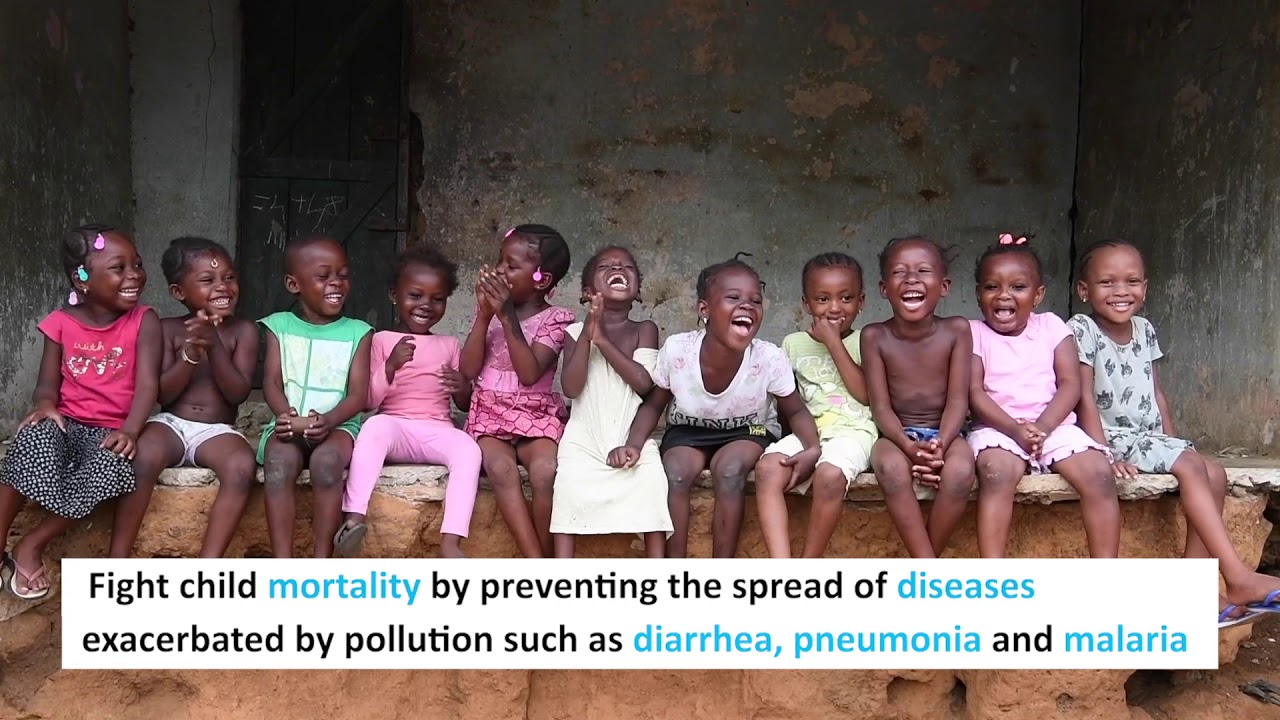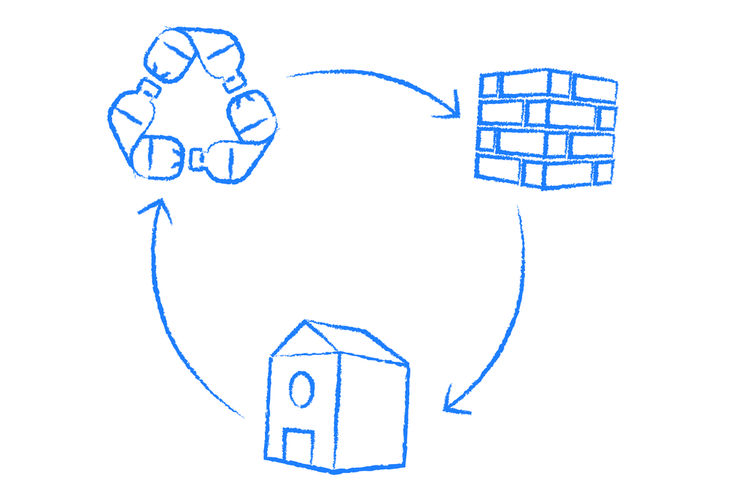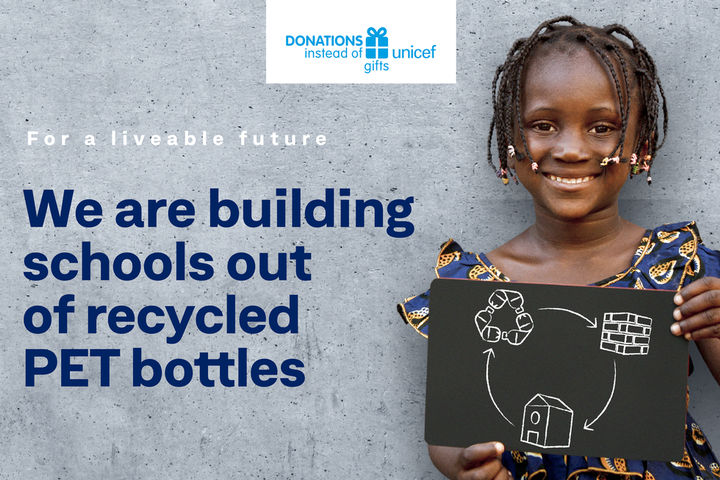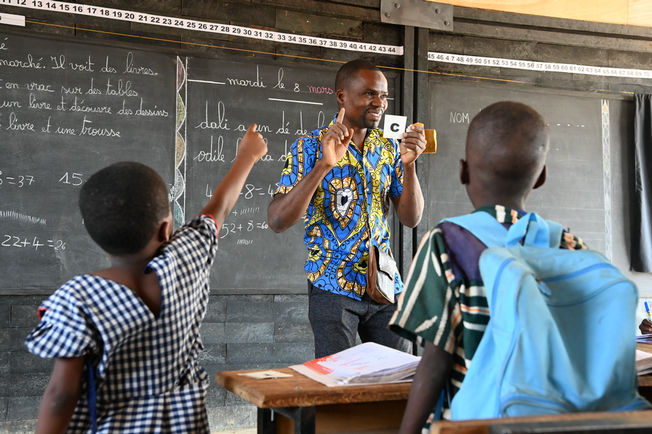Sustainable Christmas campaign
We want to create a sustainable future. Because of this, we are supporting a UNICEF project to build sustainable and liveable school buildings in the Ivory Coast with a donation of 100,000 euros. Find out more.
Our sustainable Christmas campaign: Future prospects for children
Our goal is to make the future liveable – around the world. Because of this, we regularly support international projects that pursue this goal. In 2023, we will be supporting a UNICEF project to build sustainable and liveable school buildings in the Ivory Coast with a donation of 100,000 euros.
We make a contribution with our products and services, just as we do with our donation for UNICEF schools made of recycled plastic. An outstanding project that we support based on our commitments as a family business.
Sandra Alber, Chief Officer Legal & Finance at GEZE
The bricks used to construct the school buildings are manufactured out of plastic waste. This approach helps to create liveable buildings and new educational opportunities for children.
Educational opportunities for children in the Ivory Coast

The bricks used to construct the school buildings are manufactured out of plastic waste. This approach helps to create liveable buildings and new educational opportunities for children.

Construction of a school out of plastic bricks in Yopougon, a suburb of Abidjan, which is a city in the south of the Ivory Coast. © UNICEF/UNI360067/Diarassouba
Young people will shape and guide our future. However, they can only do so if they have education, health, and the freedom to make their own decisions. This is not the case everywhere around the world.
Around 1.6 million children in the Ivory Coast do not go to school. The region also suffers from extreme environmental pollution. Too much waste and too little education: UNICEF is addressing both of these problems simultaneously by building schools out of recycled plastic bricks.
The project involves more than just building schools:
- Recycling reduces environmental pollution, thereby reducing the risk of spreading illnesses like malaria, diarrhoea, and respiratory infections that can by arise uncontrolled mountains of waste and waste water sewers.
- Recycling gives mothers impacted by poverty a way to earn money for their families.
- Trained teachers and provided learning materials give the children access to education – and thus prospects for the future.

Children on the playground of their school in Sakassou, which was built out of recycled plastic bricks. © UNICEF/UN0616769/Dejongh
Shaping the future together
We hope that this project, which is sustainable on every level, will set a precedent. Would you like to learn more about the project or support UNICEF yourself with a donation? You can find all the information you need here:
TO THE UNICEF PROJECTProject facts
- UNICEF is building 528 classrooms for thousands of school children using recycled plastic bricks.
- Several tonnes of plastic waste are being recycled every year to build schools.
- Mothers are able to work in the recycling market to earn money for their families.
- Teachers are being trained and teaching materials distributed so that children can get a school good education.
- We are supporting the project with a donation of 100,000 euros.
Do you want to do something for the climate?
We would be happy to send you our news and information digitally.<br/> Register for paperless communication here.
Register for the newsletter


